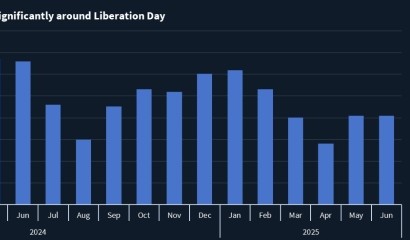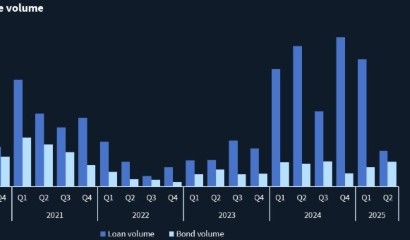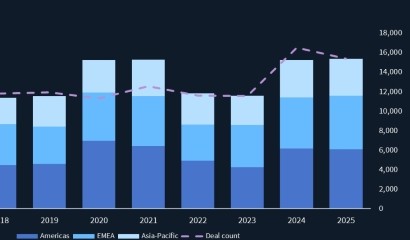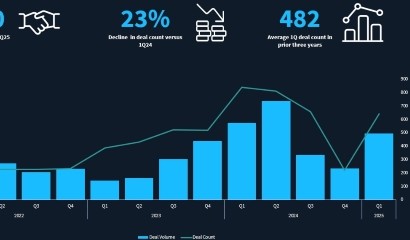Akbank calls Tier 2 notes, Al Rajhi re-opens primary with sustainable sukuk
Turkey-focused investors breathed a sigh of relief this week when the country’s largest private lender Akbank announced it would call its subordinated USD 400m 6.797% 2028 Tier 2 notes, market participants said.
While the bank had been signalling for months that it planned to call the notes, some had been concerned the Turkish regulator would block the move, in a bid to avoid outflows of precious US dollars from the crisis-stricken country.
The precedent set by fellow Turkish lender Garanti Bank last April by not calling a USD 750m 6.125% May 2027 Tier 2 bond further cast doubts on whether Akbank could follow suit.
Some said Garanti Bank’s decision at the time was motivated by its acquisition by Spanish lender BBVA, but an Istanbul-based trader acknowledged that the move was also a convenient FX liquidity boost.
Akbank ended the uncertainty on Tuesday (28 March) by announcing it had regulator approval to call the notes, which would be redeemed at par on 27 April. The lender further noted on Thursday that its board had approved the issuance of up to USD 300m Tier 2 debt, after three development finance institutions received approval to invest in its subordinated debt issuance.
According to a source close to the lender, Akbank’s decision to call the notes took into account more than just the short-term economic benefits.
“Reputation and market access are more valuable in the long run,” the source close continued. “Akbank’s call is a show of force, [a] testament to the message that liquidity and capital is still strong, and business continues as usual.”
That lender’s decision spells good news for other Turkish bank bonds with upcoming call dates, notably Isbank’s USD 500m 7% 2028 Tier 2 bond in June and Yapi Kredi’s USD 650m 13.875% perpetual notes next January, some of the market participants agreed.
Still, Turkish policy, in particular in the run-up to elections in May, is likely to remain unpredictable.
“Akbank and Isbank are the least favourites of the current government, and Yapi isn’t in a good position either,” the Istanbul-based trader said. “But still, it would be a surprise if they didn’t call, they would announce beforehand if they would not call. Garanti didn’t call but they announced it earlier.”
A London-based investor agreed that banks appeared generally willing to call, but acknowledged it was still rather uncertain what stance the regulator will adopt in each individual case. With Isbank’s call date coming up in late June, a decision should be announced in late May, he added.
Overall, the saga did not change the positive view a second London-based investor had on the Turkish banking sector, but electoral uncertainty meant he would stay away from investing in these credits.
“I would buy Turkish bank bonds all day long – private banks are decent, and state-owned banks keep getting recapitalised,” said the second investor.
“But it all comes down to what view you have on the sovereign credit and whether the post-election government, with or without Erdogan, is stable. It is difficult to invest with any confidence at this point.”
Al Rajhi debuts sustainable USD sukuk
Saudi Arabia-based lender Al Rajhi Bank re-opened the regional bond market this week with a debut sustainable sukuk.
The bank issued a USD 1bn 4.75% April 2028 senior unsecured Reg S sustainable sukuk at 99.894 for a reoffer spread of 110bps over US Treasuries on Wednesday.
The bond was trading around reoffer level on Thursday morning, according to one Dubai-based buysider. A third London-based investor said that the deal was trading up 10c-20c in the afternoon.
Both, however, noted they had refrained from participating on the deal due to tight valuations. The third London-based investor said that though they liked the credit, the deal came in tighter than comparables they were viewing.
First Abu Dhabi Bank, a fellow Gulf-based lender, has a USD 500m 4.581% January 2028 bond, which was trading at a yield of 4.85% yesterday, the third investor said.
A source near the deal noted the success of the transaction, which “hit the ball right out of the park”.
“It was definitely the right name to reopen after a turbulent couple of weeks for financials,” the source said. “But even its success surprised us.”
The second London-based investor, who participated in the deal roadshow, concurred that the tight pricing was an obstacle.
“I was really impressed with management but the problem is the pricing on these sukuk is way too tight for many international investors to get involved,” the investor said, suggesting the deal enjoyed a lot of local participation.
“I don’t think they would issue conventional [bonds] as they are an Islamic bank, but if they wanted to get internationals involved they could issue sukuk closer to conventional bond levels – that is something I would happily buy,” the second investor continued.











